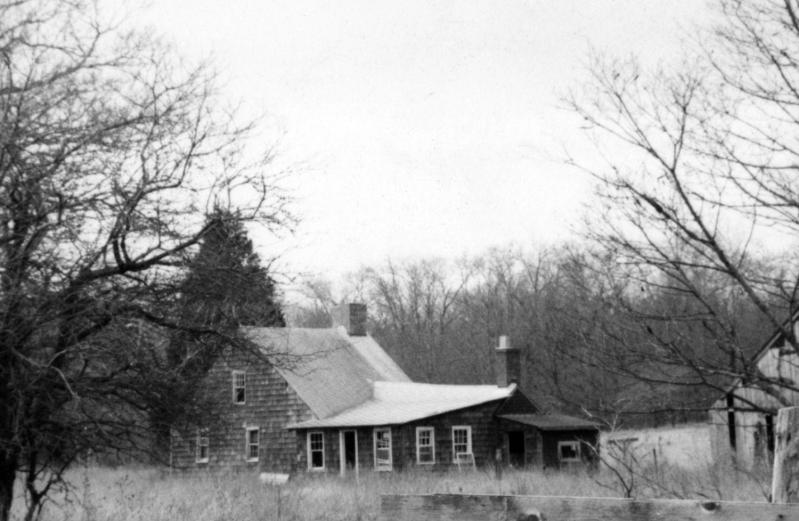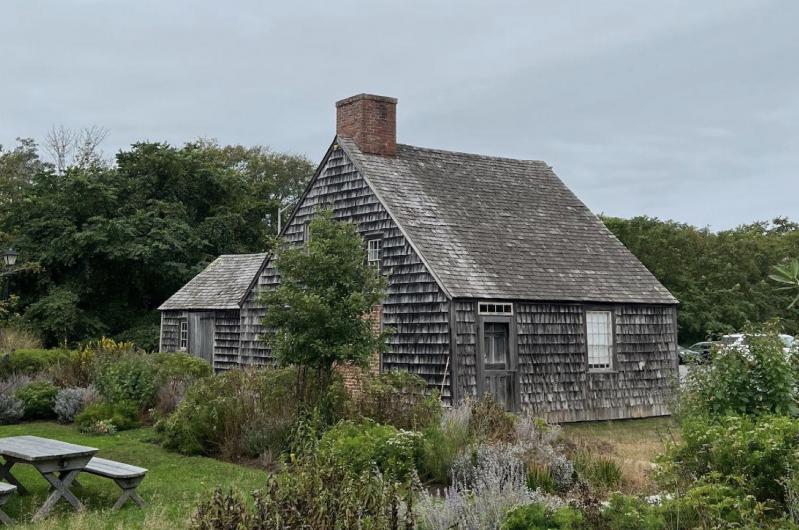The East Hampton Town Board has decided it’s time to restore the historic Peach House, which lies about a peach’s throw from the board’s own meeting room, and passed a resolution Tuesday to search for contractors. The renovation could begin this fall and be completed by May 2026, at which time it will house three town offices and a reception area.
“We are pretty cramped here,” Supervisor Kathee Burke-Gonzalez explained. “We’re looking for ways that we can expand.”
The supervisor said the Human Resources Department could be relocated to the newly renovated building. “It would give them privacy when folks come and want to have conversations about their retirement, or [new employees] being onboarded,” she said.
The house was built in the late 1700s or early 1800s in the Northwest Woods by the Ranger family, but didn’t get its current name until 1894, when it was purchased by John White Hand, who began planting a peach orchard on the property. “The name stuck,” said Matt Jedlicka, an engineer with L.K. McLean Associates, who addressed the town board Tuesday on the proposed reconstruction. “Articles in The East Hampton Star from the late 1800s talked about the excellent peaches that they grew.”

Even apart from its name, the modest structure has a colorful history. In the 1930s, the largest whiskey still on Long Island was discovered at the house.
Adelaide de Menil purchased the house in 1973 and had it moved to her 40-acre property on Further Lane. In 2006, Ms. de Menil and her husband, Edmund Carpenter, donated 14 historic buildings, eight of which became the Town Hall campus. In 2007, they were moved to their current location.
“They basically picked up the house from Further Lane, moved the house here, and set the house down,” said Mr. Jedlicka. “So there’s no electric to the building. There’s no plumbing. There’s a water line that runs right next to it.”
The Peach House has since received a new foundation and even a new septic system, which has yet to be used. Mr. Jedlicka explained that the building was deconstructed and reconstructed, and that “a lot of the historic fabric from the early 1800s is not necessarily there.” The windows were replaced. The walls were replastered. The fireplace was rebuilt.
“The general idea is to rehabilitate the whole thing,” he said. “That allows space for three relatively private office spaces and a reception area. We’re going to provide A.D.A. access and an A.D.A.-accessible bathroom.”
Councilman Tom Flight wondered if the building would be hooked into a fire suppression system.
“There’s no plan for a fire suppression system,” the engineer replied. Because the house is small (it will be occupied by only a handful of employees), such a system is not required by code, he said. “Fire suppression systems are not necessarily to preserve a historic artifact. It’s for life safety, to allow people to get out of a structure.”
Councilman David Lys remembered Ms. De Menil visiting the newly repurposed Town Hall buildings a couple of years ago. “She remembered accounts of parties in here, or sheep. It was great to listen to a person that thought so much about historical preservation long before it was in vogue. I think it’s right to move forward on this.”
Specifications will be available to contractors on June 5, with their first bids submitted on July 10.




